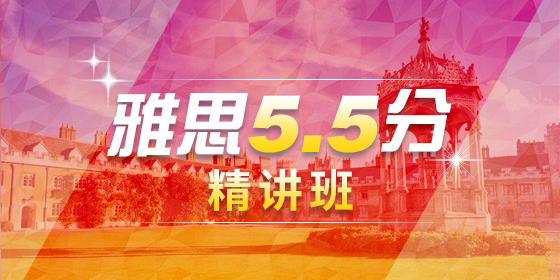登录注册
考试日期2019.02.14
Reading Passage 1
TitleInsomnia-The Enemy of Sleep
Question typesMatching Information
Summary Completion
相关阅读文章A
It is not unusual to have sleep troubles from time to time. But, if you feel you do not get enough sleep or satisfying sleep, you may have insomnia, a sleep disorder. People with insomnia have one or more of the following: difficulty falling asleep, waking up often during the night and having trouble going back to sleep, waking up too early in the morning and unrefreshing sleep. Insomnia is not defined by the number of hours you sleep every night. The amount of sleep a person needs varies. While most people need between 7 and 8 hours of sleep a night, some people do well with less, and some need more.
B
Insomnia occurs most frequently in people over age 60, in people with a history of depression, and in women, especially after menopause. Severe emotional trauma can also cause insomnia with divorced, widowed and separated people being the most likely to suffer from this sleep disorder. Stress, anxiety, illness and other sleep disorders such as restless legs syndrome are the most common causes of insomnia. An irregular work schedule, jet lag or brain damage from a stroke or Alzeimer’s disease can also cause insomnia as well as excessive use of alcohol or illicit drugs. It can also accompany a variety of mental illnesses.
C
The mechanism that induces sleep is not known. When it becomes dark, the pineal gland in the brain secretes a hormone called melatonin, which is thought to induce sleep. Exactly why sleep is necessary for good health and efficient mental functioning is unknown. We do know that sleep consists of two very different states: rapid eye movement (REM) sleep and non-REM sleep. In REM sleep, dreams occur, the eyes move under the closed lids and there is an increase in oxygen consumption, blood flow and neural activity. REM sleep occurs four or five times during a night. Beginning periods last about ten to fifteen minutes but the periods get longer as the night goes on. The periods of REM sleep alternate with longer periods of non-REM sleep, when body functions slow. Non-REM sleep has four stages. During the deepest stages (3 and 4) it is hard to rouse a sleeper. As the night goes on, the periods of non-REM sleep become progressively lighter. Sleep in stages 1 and 2 are felt to be restorative as during this time the body repairs itself utilising a hormone called somatostatin. Lack of stage 4 sleep is believed to be important in chronically painful conditions such as fibromyalgia.
D
Healthcare providers diagnose insomnia in several ways. One way is to categorize insomnia by how often it occurs. Another way is to identify the insomnia by what is causing the sleep deprivation. The two main types of insomnia have been described as Primary Insomnia and Secondary Insomnia. Primary Insomnia is a chronic condition with little apparent association with stress or a medical problem. The most common form of primary insomnia is psychophysiological insomnia. Secondary insomnia is caused by symptoms that accompany a medical condition such as anxiety, depression or pain.
E
Improving one’s sleep hygiene helps improve insomnia in all patients. Relaxing during the hour before you go to sleep and creating a comfortable environment suited for sleep can be helpful. Older people who wake up earlier than normal or have trouble falling asleep may need less sleep than they used to. Changing one’s sleep pattern, either by going to bed later or waking up earlier, can be effective in dealing with insomnia in older people. Therapy also depends on the cause and severity of the insomnia. Transient and intermittent insomnia may not require any direct action since these conditions last only a few days at a time. However, if insomnia interferes with a person’s daily activities, something should be done. Usually the best method of dealing with insomnia is by attacking the underlying cause. For example, people who are depressed often have insomnia and looking at this problem may eliminate it.
F
Not getting enough sleep can make you less productive, irritable and unable to concentrate. Lack of sleep can make it seem as if you “got up out of the wrong side of the bed.” Early morning headaches and waking up feeling as if you never went to sleep can result in frustration. Stress can cause insomnia but insomnia also increases stress. Insomnia can make driving unsafe as well. Insomnia can result in missed work, which can cause you to become less productive and miss promotions. It can leave you feeling as if you just can’t get enough done. Insomnia can also mask serious mental disorders. People with insomnia may think that not getting enough sleep is their only problem, but the insomnia may actually be one symptom of a larger disorder, such as depression. Studies show that people with insomnia are four times more likely to be depressed than people with a healthy sleeping pattern. In addition, lack of sleep can tax the heart and lead to serious conditions like heart disease. All of these are important problems that can affect every part of your life.
G
Establishing certain set routines can help insomniacs get better sleep. Examples of these routines include: going to bed and getting up at the same time every day, avoiding napping, avoiding caffeine, nicotine, alcohol and eating heavily late in the day, exercising regularly and making your bedroom comfortable in terms of the bed, noise and temperature. Insomniacs should also only use their bedroom for sleep so that their bodies associate the room with sleep. Finally, if you can’t get to sleep, don’t toss and turn all night. Get up and read or do something that is not overly stimulating until you feel really sleepy again.
题型难度分析本篇文章属于医学话题的一篇介绍类说明文,“失眠”这一话题在以往的考试有过涉及,所以考生应该不陌生。题型设置也很常规,难度总体不大。
Reading Passage 2
Title饰品问题
Question typesMatching Information
Summary Completion
Multiple Choice
题型难度分析关于本篇文章的回忆内容有限,但根据回忆的题型可以看出,考到了难度比较大的段落信息匹配题,可能在做题的时间上会增加一定的难度。
Reading Passage 3
Title不同历史时期的编织物
题型难度分析本篇文章回忆有限,就题型而言难度不大。
考试趋势分析和备考指导:
本场阅读考试的篇章回忆有限,从现有的题型和话题来看总体来说难度中等。虽然没有具体的文章内容或题目,但三篇文章涉及的领域和话题在剑桥真题和以往的机经中都出现过,所以对考生而言不会感到很陌生。就题型分布和设置来说,填空题仍然是本次考试的重点。匹配题相对而言定位简单,而较花费时间的选择出现数量较少;本场阅读考试在第二篇出现了段落信息匹配题,没有考到Matching Headings,可能对于大部分的考生来说降低了难度。建议考生在考前多熟悉剑桥真题和以往考试当中出现过的各类话题,考前补充相关词汇和背景常识。



![]()